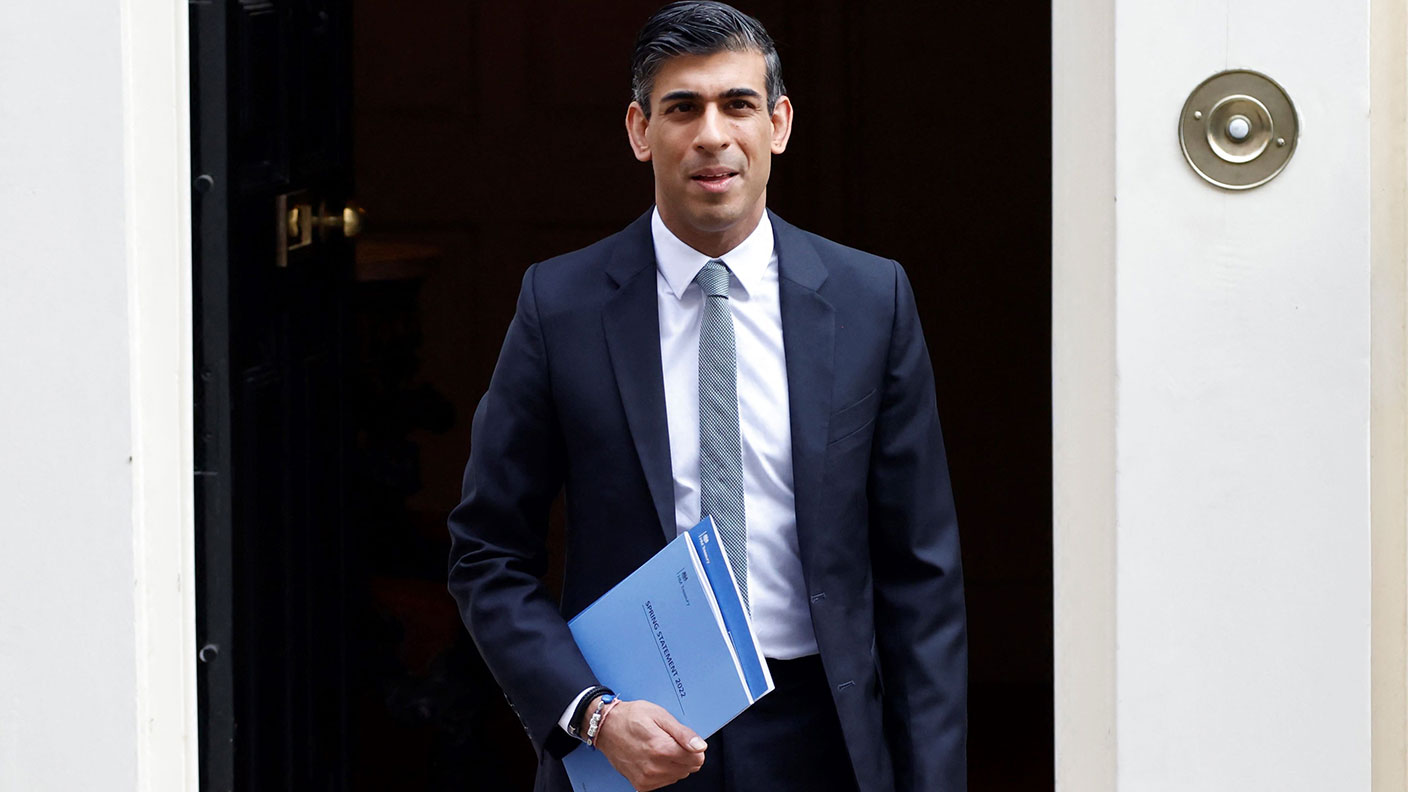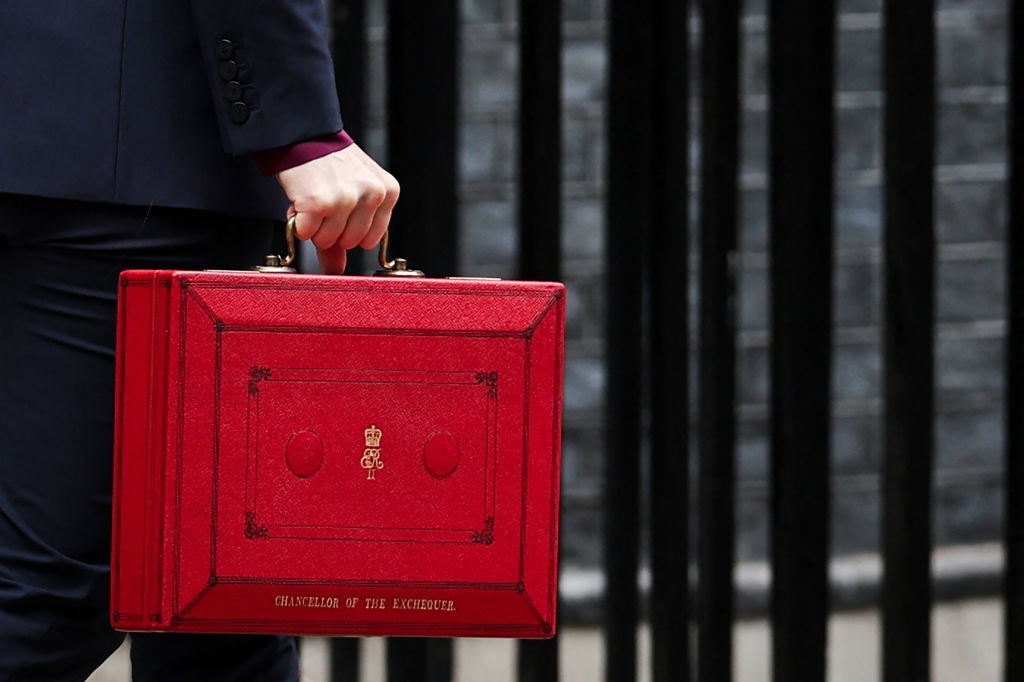Here’s what the Spring Statement means for your money
David Prosser looks into the details of Rishi Sunak's "jam tomorrow" Spring Statement and explains just what it means for you and your money.


Get the latest financial news, insights and expert analysis from our award-winning MoneyWeek team, to help you understand what really matters when it comes to your finances.
You are now subscribed
Your newsletter sign-up was successful
Want to add more newsletters?
Rishi Sunak’s Spring Statement might be described as the “jam tomorrow” Budget. Analysis from the Office for Budget Responsibility (OBR) lays bare the effect of the cost of living crisis – real household disposable incomes will fall by 2.2% on average in 2022-2023, “the largest fall in a single financial year since records began in 1956-1957”.
But the chancellor’s most eye-catching offers of support will not be immediately available. Even Sunak’s marquee announcement, an increase in the National Insurance threshold to counteract higher National Insurance rates, doesn’t take effect until three months into the new financial year. And the first cut in the basic rate of income tax in 16 years won’t be implemented until 2024 (assuming it actually happens).
In the meantime, the chancellor will be hoping he has done enough to bolster the Conservative Party’s tax-cutting credentials, potentially in time for a general election once that tax cut comes into force. That might be a tough sell, given that the OBR’s analysis suggests Sunak has so far announced tax cuts that amount to just a sixth of the value of the tax rises he has announced since moving into 11 Downing Street.
Try 6 free issues of MoneyWeek today
Get unparalleled financial insight, analysis and expert opinion you can profit from.

Sign up to Money Morning
Don't miss the latest investment and personal finances news, market analysis, plus money-saving tips with our free twice-daily newsletter
Don't miss the latest investment and personal finances news, market analysis, plus money-saving tips with our free twice-daily newsletter
Personal tax winners and losers
Having spent months defending his plans to raise National Insurance contributions in order to fund health and social care, the chancellor pulled a rabbit out of the hat in the Spring Statement to have his cake while eating it. National Insurance rates will still increase by 1.25 percentage points from 6 April – but low and middle earners will be cushioned from the blow with a higher National Insurance threshold.
By raising the level of income at which people begin paying National Insurance contributions to £12,570 – rather than £9,880 previously planned – Sunak will leave around 70% of people better off in 2022-2023, analysis from Hargreaves Lansdown suggests, even though the increase doesn’t come into effect until July.
The tipping point, it calculates, comes for those earning between £40,000 and £50,000. For someone earning £20,000, the effect of the higher threshold will cancel out the increased contribution rate next year, ensuring they end up £267 better off than in 2021-2022. By contrast, someone earning £50,000 will be £108 worse off.
Further out, the chancellor is promising an income tax cut in 2024, when the basic rate will fall from 20% to 19%. But it’s worth remembering the chancellor said last year that income tax thresholds would be frozen until 2026; “fiscal drag” will bring more people within the reach of the higher rate of income tax, which is staying at 40%. That will undermine their basic rate of income tax savings.
Cheaper fuel
With a sharp increase in the oil price following Russia’s invasion of Ukraine, petrol and diesel prices have spiked sharply higher in recent weeks. The chancellor offered some help with only the second cut in fuel duty in the past 20 years; the reduction is 5p a litre, introduced immediately, and available for 12 months.
The RAC says the reduction will reduce the cost of filling up a typical family car by around £3.30. Motorists will welcome that, though with petrol and diesel prices up by around 40p and 50p a litre over the past year, the reduction doesn’t go very far.
Cold comfort but help to go green
The chancellor resisted calls for further measures to help households with the soaring cost of gas and electricity bills. Sunak is allocating an additional £500m to the Household Support Fund, which provides local authorities in England with funds to support vulnerable households as they see fit – but that is it.
The chancellor points out that his Energy Rebates scheme (announced in February) provides households with help via a combination of council tax rebates and discounts on electricity bills to be repaid over the next four years.
Still, there is some good news for homeowners looking to move to greener energy solutions. For the next five years, there will be no VAT to pay on products such as solar panels, electric heat pumps and insulation – currently a 5% VAT rate applies to such equipment.
No respite for pensioners
With the Office for National Statistics announcing just hours before the spring statement that inflation had risen to 6.2%, the suspension of the “triple lock” guarantee on state pensions became even more expensive for pensions.
But while inflation is expected to rise even higher in the months ahead, Sunak did not deviate from the plan to raise state pensions by only 3.1%, rather than in line with inflation, as the triple lock would normally ensure.
Still, the government has also confirmed the triple lock is not being dumped permanently – it will return in 2023.
Support for small businesses
A rise in the Employment Allowance will help small business owners who are worried about April’s rise in National Insurance rates, which apply to employers’ contributions as well as employees’. The allowance currently enables eligible employers to reduce their annual National Insurance liability by £4,000, but this will now increase to £5,000 on 6 April.
The relief is targeted at the smallest businesses – to be eligible, employers’ Class 1 National Insurance liabilities must have been less than £100,000 in the previous tax year. But for those who qualify, this is valuable support – the Federation of Small Business had previously calculated that higher National Insurance would cost the average small company more than £3,000 a year.
Tax reform ahead?
In line with his jam tomorrow theme, the chancellor announced plans to consult on an overhaul of the tax system to boost growth and productivity – he plans to announce the results of his review at the Budget later this year.
One target is simplification – there are now more than 1,000 tax reliefs and allowances, Sunak pointed out – but the government is making no promises.
And future reforms won’t necessarily save money. One big question mark concerns the future of pension tax reliefs. The income tax cut due in 2024 means basic-rate taxpayers will from then on receive even lower tax relief on private pension contributions than higher earners. Might that be an excuse for a revamp of the whole system to reduce its cost?
Get the latest financial news, insights and expert analysis from our award-winning MoneyWeek team, to help you understand what really matters when it comes to your finances.

David Prosser is a regular MoneyWeek columnist, writing on small business and entrepreneurship, as well as pensions and other forms of tax-efficient savings and investments. David has been a financial journalist for almost 30 years, specialising initially in personal finance, and then in broader business coverage. He has worked for national newspaper groups including The Financial Times, The Guardian and Observer, Express Newspapers and, most recently, The Independent, where he served for more than three years as business editor.
-
 What do rising oil prices mean for you?
What do rising oil prices mean for you?As conflict in the Middle East sparks an increase in the price of oil, will you see petrol and energy bills go up?
-
 Rachel Reeves's Spring Statement – live analysis and commentary
Rachel Reeves's Spring Statement – live analysis and commentaryChancellor Rachel Reeves will deliver her Spring Statement on 3 March. What can we expect in the speech?
-
 Was Margaret Thatcher great for Britain?
Was Margaret Thatcher great for Britain?The 'Iron Lady’ would be celebrating her 100th birthday this month. Margaret Thatcher rose to power in 1979 as the first ever female prime minister and was one of the most controversial leaders in history, but how did her policies shape today’s finances?
-
 Is Britain heading for a big debt crisis?
Is Britain heading for a big debt crisis?Opinion Things are not yet as bad as some reports have claimed. But they sure aren’t rosy either, says Julian Jessop
-
 When is the Autumn Budget and what should you expect?
When is the Autumn Budget and what should you expect?Chancellor Rachel Reeves is set to deliver her second Autumn Budget next week – but what exactly does the fiscal event involve?
-
 Conservatives pledge to cut National Insurance again – how much could you save?
Conservatives pledge to cut National Insurance again – how much could you save?News A 2p reduction in National Insurance is a key feature of the Tory’s general election manifesto.
-
 UK wages grow at a record pace
UK wages grow at a record paceThe latest UK wages data will add pressure on the BoE to push interest rates even higher.
-
 Trapped in a time of zombie government
Trapped in a time of zombie governmentIt’s not just companies that are eking out an existence, says Max King. The state is in the twilight zone too.
-
 America is in deep denial over debt
America is in deep denial over debtThe downgrade in America’s credit rating was much criticised by the US government, says Alex Rankine. But was it a long time coming?
-
 UK economy avoids stagnation with surprise growth
UK economy avoids stagnation with surprise growthGross domestic product increased by 0.2% in the second quarter and by 0.5% in June